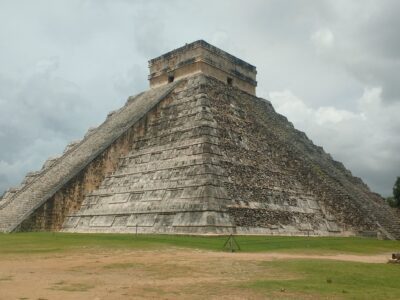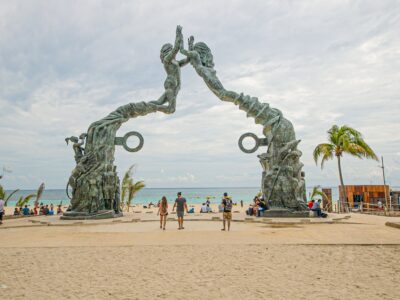The contamination of water in the subsoil of Yucatán is a phenomenon that advances and worsens, without any law or authority being able to stop it, which is why it is necessary for citizens to mobilize to stop making decisions from a desk and promote participation in society, especially of the people who are being affected by this situation.
This was stated by Rosario May, a member of the Council of the Citizen Comptroller’s Office for Water in Yucatán, during a demonstration at the facilities of the National Water Commission in this city, where she was with residents of the municipality of Ucú, who have initiated actions to stop to water pollution in that place as part of real estate development in the area.
They also denounced cases such as the one in Hunucmá, where a large beer factory was installed without taking into account the opinion of the indigenous communities, even though it is an industry that consumes large amounts of water and throws contaminants into the subsoil.
The same is happening with other projects related to the poultry and pork industry, whose activity is directly related to the contamination of the water table, they noted.
“There are already many studies that corroborate the high level of water contamination in Yucatan with heavy metals and even with elements that could be carcinogenic and in general potentially harmful to human health,” said the interviewee.
“The main sources of water pollution in Yucatan are: one is the cities, since there are no waste treatment plants in homes, and the other is the use of agrochemicals,” he explained.
He points out that particularly the use of agrochemicals in the entity is a very serious issue since he argued that at any point in the state where a sample of the liquid is taken, these elements will be present.
“Agrochemicals do not degrade over time, in fact, they are related to serious health conditions such as cancer, kidney diseases, skin diseases, and allergies, among others,” he said.

Likewise, experts from the Center for Research and Advanced Studies (Cinvestav) Mérida Unit have repeatedly warned that the hydrological reserve of the Yucatán Peninsula is at a critical point of contamination and overexploitation, especially in the ring of cenotes, where The presence of mercury and arsenic has been detected in the blood of inhabitants of the region, being linked to cases of cervical and breast cancer.
Marco Antonio Cervera Herrera, also a member of that Comptroller’s Office, pointed out that for all of the above, they demand that the pork, poultry, and brewing industries be regulated because they operate without having water concessions, and all their pollutants are thrown out. Open sky and cenotes.
For this reason, this mobilization was carried out in 28 states of the country where representatives of Conagua were given a petition with some 15 recommendations so that the authorities in charge of caring for national waters could analyze them and undertake policies and programs to stop pollution and begin the cleanup of cenotes and water tanks that are already deeply contaminated.
“Now there is a brewing company that is supposed to start operating in Kanasín, where the community is not being taken into account, that is, it is a story that is repeated over and over and over again, without anything being done. To regulate these activities and stop the growing contamination of soils and cenotes,” he concluded.
TYT Newsroom
The post Experts see a water crisis in Yucatan due to overexploitation first appeared on The Yucatan Times.














